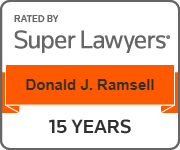Kansas DUI Laws - Kansas DUI Penalties - Kansas DWI Laws
Locate Kansas DUI Attorneys and Kansas Drunk Driving Lawyers Here
General Kansas DUI Laws and Kansas DUI Information
10 DAY WARNING!!!
You must send a letter requesting an administrative hearing to the Kansas Department of Revenue within 10 business days of the day you received the DUI or your driving privileges will automatically be suspended, period. Contact a Kansas DUI Lawyer NOW!!!
Kansas DUI arrests give rise to two distinct and separate aspects of your case: the criminal proceedings, which are resolved in the municipal or district court where the case is charged and can result in fines and/or jail time; and the administrative proceedings, which can result in the suspension of your driving privileges. It is extremely important to pay attention to both the criminal court case and the administrative driver's license case, as the deadlines, rules, procedures and burdens of proof are entirely different.
At the administrative level, the term of suspension that you face depends upon several factors: whether you failed the chemical test or whether you refused to submit to it; if you did submit to and fail the intoxilyzer test, whether you tested at or above .15% alcohol concentration; whether this is your first or subsequent test failure or refusal; and whether you are over or under 21 years of age. The time of suspension of driving privileges, depending on these factors, ranges from 30 days to permanent revocation of driving privileges.
Kansas DUI law provides you with the right to an administrative hearing wherein you or your lawyer can challenge the grounds upon which your license is suspended. If you request an administrative hearing in a timely manner, your driving privileges cannot be suspended until a decision has been made by the hearing officer. In other words, the validity of your temporary driving privileges is extended until after the hearing which is frequently scheduled months after the request. Prior to the hearing, you can subpoena certain documents and witnesses who may have information about your case.
At the hearing, a number of issues can be raised in your defense, depending on the facts of your case. These issues include: whether or not the officer had reasonable grounds to believe that you were operating or attempting to operate a vehicle while under the influence of alcohol or drugs; whether you were given the legally required notices before being asked to submit to testing; whether your actions constituted a legal refusal to take the test; whether the testing equipment and the officer operating the machine were certified by the Kansas Department of Health and Environment (KDHE); as well as other due process or other constitutional issues.
If you are successful at the hearing, or if the officer fails to appear without requesting a continuance of the hearing in writing, your license may not be administratively suspended at all. However, you must send a letter requesting an administrative hearing to the Kansas Department of Revenue within 10 business days of the day you received the DUI or your driving privileges will automatically be suspended, period. Thus, it is critical that you obtain the services of a well-qualified Kansas DUI defense lawyer as soon as possible after the arrest.
KS Driver's License Suspension
If you are facing loss of your driver's license due to DUI or an implied consent violation, you need the help of an experienced and resourceful Kansas City driver's license suspension lawyer. Contact my DUI defense law firm in Olathe for a free consultation.
Effective July 1, 2007, the Kansas Legislature enacted several amendments to the state's DUI laws. These amendments also affect the statutory Administrative Suspension provisions. Essentially, the sentencing and suspension provisions are significantly greater for drivers who either refuse the Intoxilyzer test or provide a breath sample in excess of .15% alcohol concentration.
First Offense:
If a law enforcement officer is deemed to have valid "reasonable basis" to request that you submit to an Intoxilyzer test and you fail the test by providing a breath sample in excess of .08% alcohol - but less than .15% - the Kansas Department of Revenue can suspend your license for a 30-day period, followed by 330 more days of restricted driving privileges. Some defendants apply for unrestricted driving privileges following the 30-day suspension by requesting an ignition interlock device.
If you test at or above .15% on a true first offense, or if you refuse the Intoxilyzer test, you face suspension of your driving privileges for a full year followed by an additional year of driving a vehicle only if it is equipped with an ignition interlock device.
Second Offense:
If you fail the test by providing a breath sample in excess of .08% alcohol - but less than .15% - the Kansas Department of Revenue can suspend your license for one full year.
If you test at or above .15% on second offense, you face suspension of your driving privileges for a full year followed by an additional 2 years of driving a vehicle only if it is equipped with an ignition interlock device.
If you refuse the Intoxilyzer test on a second offense, you face suspension of your driver's license for 2 years.
Third Offense:
If you fail the test by providing a breath sample in excess of .08% alcohol - but less than .15% - the Kansas Department of Revenue can suspend your license for one full year.
If you test at or above .15% on third offense, you face suspension of your driving privileges for a full year followed by an additional 3 years of driving a vehicle only if it is equipped with an ignition interlock device.
If you refuse the Intoxilyzer test on a third offense, you face suspension of your driver's license for 3 years.
Fourth Offense:
If you fail the test by providing a breath sample in excess of .08% alcohol - but less than .15% - the Kansas Department of Revenue can suspend your license for one full year.
If you test at or above .15% on fourth offense, you face suspension of your driving privileges for a full year followed by an additional 4 years of driving a vehicle only if it is equipped with an ignition interlock device.
If you refuse the Intoxilyzer test on a fourth offense, you face suspension of your driver's license for 10 years.
Fifth Offense:
If a law enforcement officer is deemed to have valid "reasonable basis" to request that you submit to an Intoxilyzer test and you fail or refuse the test, you face permanently revocation of your driving privileges.
Written Request for Hearing
Based on the foregoing, it is absolutely essential to put the Department of Revenue administrative hearing process into effect as soon as possible after a DUI arrest or implied consent violation. The only way to avoid the usual suspension penalties is to apply for a forma Administrative Hearing within ten court days of the date you get the DUI . (The ONLY change in the law that is of benefit to Kansas drivers is that the Department of Revenue no longer counts Saturdays, Sundays and legal holidays against you in calculating the 10 day period in which to submit your written request for the hearing.) That will extend your temporary driving privileges until 30 calendar days after the date of the Administrative Hearing. It is also essential to defeat whatever DUI charges you are facing in connection with your arrest or implied consent violation. This is because the Department of Revenue may issue an Order of Suspension following formal Court Conviction for DUI - regardless of what happens at the Administrative Hearing. Think of it as though the Department of Revenue has 2 chances to suspend your license: once at the Administrative Hearing and again at Court.
It takes an experienced Kansas DUI defense lawyer to help you avoid the problems of a suspended or revoked license and negotiate the maze of Kansas DMV procedures and administrative hearings. Contact my office in Olathe and we can discuss your situation in a free initial consultation.
POTENTIAL KANSAS DUI PENALTIES
Kansas DUI cases in criminal court may result in fines, jail time, court-ordered suspension of your driving privileges, and the potential impoundment of your vehicle. The amount of fine and the length of the jail sentence are determined, in large part, by whether you have previously been convicted, or placed on diversion for DUI. It no longer matters where or how long ago a prior conviction occurred. Now, all prior DUI convictions and DUI diversions count, regardless of where or how long ago they occurred.
- First Offense DUI: (Class B misdemeanor) The potential sentence is up to six months in jail. The fine for a first conviction ranges between $500 and $1,000. Driving privileges are suspended for 30 days, followed by 330 days of restricted privileges (to and from work only) for test failure. For a test refusal, driving privileges are suspended for a full year. A drug and alcohol evaluation will be required to successfully complete any treatment recommended by the evaluator.
- Second Offense DUI: (Class A misdemeanor) The mandatory minimum underlying sentence is 90 days in jail; however, the sentence can be as long as one full year. Substance abuse treatment is required. Potential fines range from $1,000 to $1,500. Driving privileges are suspended for one year followed by one year of ignition interlock restrictions for a test failure and driving privileges are suspended for a full two years for a test refusal.
- Third Offense DUI: ("Unscored felony") The mandatory minimum underlying sentence is 90 days; however, the sentence can be as long as 12 months. A person convicted of a third offense DUI, however, must serve at least 48 hours in jail before being eligible for "house arrest" for the remaining 88 days of the mandatory minimum sentence. Fines range from $1,500 to $2,500. Driving privileges are suspended for one year followed by one year of interlock restrictions. For a test refusal, the term of suspension is 3 years.
- Fourth Offense DUI: ("Unscored felony") The mandatory minimum underlying sentence is 90 days; however, the sentence can be as long as 12 months. A person convicted of a fourth or subsequent DUI, however, must serve 72 hours in jail before being eligible for a "work release" program for the balance of the mandatory minimum 90 day sentence. The fine is $2,500. Driving privileges are suspended for one year followed by one year of interlock restrictions for a test failure. For a test refusal, the term of suspension is 10 years. If there is a fifth alcohol related occurrence wherein the driver "refused" the Intoxilyzer test, driving privileges are permanently revoked.
Effective of July 1, 2007, the Kansas Legislature significantly enhanced DUI Penalties for drivers who either refuse the Intoxilyzer Test or who submit a sample of breath or blood in excess of .15% alcohol concentration.
- First Offense DUI: If you have either refused the Intoxilyzer Test or if you tested at or above .15% alcohol concentration, the potential sentence doubles from 6 months to as long as a full year in jail. The "mandatory minimum" time that you must serve before being eligible for probation is also doubled to 96 hours instead of only 48 hours. The fine range also doubles from $500 - $1,000 to $1,000 - $2,000 at the discretion of the sentencing judge.
- Second Offense DUI: If you have either refused the Intoxilyzer Test or if you tested at or above .15% alcohol concentration, the potential sentence doubles from 1 year to as long as two (2) full year in jail. The "mandatory minimum" time that you must serve before being eligible for probation is also doubled to 10 days instead of only 5 days. The fine range also doubles from $1,000 - $1,500 to $2,000 - $3,000 at the discretion of the sentencing judge. You must serve at least 96 consecutive hours of the mandatory minimum sentence in custody before being eligible for house arrest or work release.
- Third Offense DUI: If you have either refused the Intoxilyzer Test or if you tested at or above .15% alcohol concentration, the potential sentence doubles from 1 year to as long as two (2) full year in jail. The "mandatory minimum" time that you must serve before being eligible for probation is also doubled to 180 days instead of only 90 days. The fine range also doubles from $1,500 - $2,500 to $3,000 - $5,000 at the discretion of the sentencing judge. You must serve at least 96 consecutive hours of the mandatory minimum sentence in custody before being eligible for house arrest or work release.
- Fourth Offense DUI: If you have either refused the Intoxilyzer Test or if you tested at or above .15% alcohol concentration, the potential sentence doubles from 1 year to as long as two (2) full year in jail. The "mandatory minimum" time that you must serve before being eligible for probation is also doubled to 180 days instead of only 90 days. The mandatory fine is $5,000. You must serve at least 144 consecutive hours of the mandatory minimum sentence in custody before being eligible for work release. There is no "house arrest" option on a Fourth or subsequent DUI conviction.
KANSAS DUI DWI DIVERSION
Kansas DUI law is unique, since it allows for a DUI diversion program (which most states do not). If you have never been convicted of DUI, have never entered into a diversion contract for DUI before, and were not involved in an accident or collision resulting in personal injury or death, you may be eligible to participate in a DUI diversion program.
Kansas DUI Diversion is essentially a contract between the county or city and the person charged with DUI in which the person charged gives up his or her right to a speedy trial and his or her right to a jury trial, in exchange for an opportunity to avoid a conviction for DUI. Under the diversion agreement, you will be required to pay a fine; attend an alcohol and drug safety action program or treatment program, or both; use no alcohol or drugs; and fulfill whatever other terms and conditions the city or state requires.
Kansas DUI Diversion has one chief benefit: If, at the completion of the diversion period you have completed all the requirements of the contract, the criminal charge of DUI is dismissed. However, if you do not successfully complete the requirements of the Diversion contract, the criminal case against you will be reinstated and your trial will be conducted on stipulated facts, meaning that there will be no opportunity to cross examine witnesses, present new evidence, or mount any meaningful defense.
3 Easy Ways to find one of America's DUI DWI Attorneys:
1. Call 1-800-DIAL-DUI and enter the area code for the cities below;
2. Click on the City below nearest where you were arrested; or








